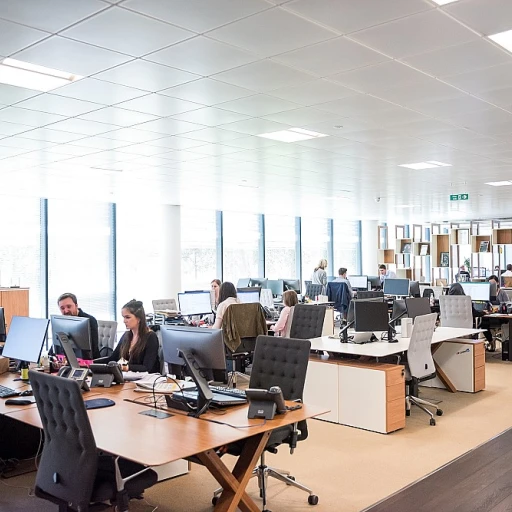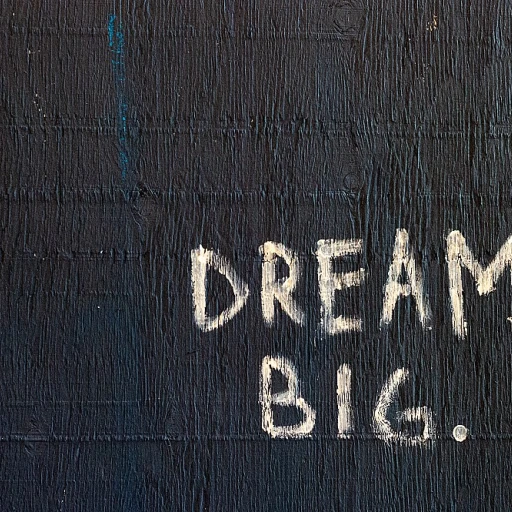
Understanding the importance of teamwork in HR interviews
Why Interviewers Focus on Teamwork
In HR job interviews, teamwork is a central theme because organizations know that strong collaboration leads to better employee performance and overall team success. Interviewers want to understand how you contribute to a positive work environment, communicate with team members, and handle feedback. They are looking for candidates who consistently demonstrate quality work, constructive feedback, and effective problem solving within a team setting.
How Teamwork Impacts Performance Reviews
Performance reviews often include specific review phrases and appraisal comments about teamwork skills. These reviews assess not just individual achievements but also how well employees work with others, share goals, and support improvement. Constructive phrases in performance reviews highlight areas like communication skills, time management, and the ability to give and receive feedback. The goal is to ensure that every team member contributes to team performance and helps drive success.
What Employers Want to See
- Examples of collaboration and how you helped achieve team goals
- Comments on how you handle constructive feedback and use it for improvement
- Evidence of strong communication and problem solving skills
- Ways you support other employees and foster a positive work environment
Understanding the importance of teamwork in HR interviews sets the stage for answering common performance review questions and showcasing your skills with real examples. If you want to learn more about how teamwork fits into the broader HR process, check out this guide on what HR interview candidates need to know about onboarding.
Common teamwork performance review questions and what they reveal
Key Questions That Uncover Teamwork Strengths
Interviewers often use specific performance review questions to evaluate how well candidates collaborate and contribute to team success. These questions are designed to reveal not just technical skills, but also communication, problem solving, and the ability to give and receive constructive feedback. Understanding the intent behind these questions can help you prepare more effective answers and demonstrate your value as a team member.- Describe a time when you contributed to a team project. What was your role and how did you ensure quality work?
- How do you handle disagreements or conflicts with other team members?
- Can you give an example of how you provided constructive feedback to a colleague?
- What steps do you take to ensure open communication within your team?
- How do you prioritize team goals and manage your time to meet deadlines?
What Interviewers Learn from Your Answers
Your responses to teamwork performance review questions reveal much more than your technical abilities. They show how you approach team performance, handle feedback, and contribute to a positive work environment. For example, sharing how you offered constructive phrases or appraisal comments to help a team member improve demonstrates leadership and empathy. Employers also assess your understanding of performance management and your willingness to support employee performance improvement. Strong answers highlight your commitment to team goals, your ability to give and receive review comments, and your focus on continuous improvement. If you want to dive deeper into how these questions fit into the broader hiring process, you can read about the pivotal hiring challenge identification process in HR job interviews.Common Phrases and Comments Used in Teamwork Reviews
Performance reviews often include specific phrases and comments to describe teamwork skills. Familiarizing yourself with these can help you frame your own experiences more effectively:- "Consistently collaborates with team members to achieve shared goals."
- "Demonstrates strong communication skills and provides constructive feedback."
- "Shows initiative in problem solving and supports team improvement efforts."
- "Maintains a positive work environment and encourages employee engagement."
- "Effectively manages time and resources to ensure team success."
Showcasing your teamwork skills with real examples
Demonstrating Real Teamwork Achievements
When discussing your teamwork skills in HR job interviews, it’s essential to provide concrete examples that highlight your ability to contribute to team success. Interviewers look for candidates who can show how their collaboration, communication skills, and constructive feedback have positively influenced team performance and employee performance. One effective way to present your experience is by referencing specific situations where your actions led to measurable improvement or helped the team achieve its goals. Consider these aspects when preparing your answers:- Collaboration and Communication: Share a time when you worked closely with team members to solve a problem or reach a challenging target. Explain how you facilitated open communication and encouraged constructive feedback among employees.
- Performance Review Phrases: Use phrases such as "consistently supported team members," "actively contributed to a positive work environment," or "provided quality work under tight deadlines." These comments demonstrate your commitment to team performance and performance management.
- Constructive Feedback and Improvement: Describe how you gave or received constructive feedback that led to improvement in team processes or individual employee performance. Highlight your role in fostering a culture of continuous improvement.
- Problem Solving and Time Management: Give an example where your problem-solving skills and effective time management helped the team overcome obstacles and meet performance review goals.
Addressing challenges and conflicts within teams
Turning Team Challenges Into Opportunities for Growth
Addressing challenges and conflicts within teams is a key part of performance reviews and HR job interviews. Recruiters want to know how you handle difficult situations, maintain team performance, and contribute to a positive work environment. Demonstrating your ability to navigate these moments shows strong teamwork skills and a commitment to improvement.- Recognize the value of constructive feedback: When discussing past challenges, highlight how you gave or received constructive feedback. Use performance review phrases like "open to improvement" or "consistently seeks solutions" to show your proactive approach.
- Focus on communication skills: Effective communication is essential for resolving conflicts. Share examples where you used clear, respectful communication to address misunderstandings or align team members with shared goals.
- Emphasize collaboration and problem solving: Interviewers look for candidates who can work with others to overcome obstacles. Describe how you collaborated with employees or team members to find solutions, improve team performance, or achieve quality work despite setbacks.
- Showcase adaptability and time management: Teams often face tight deadlines or shifting priorities. Mention how you managed your time and adapted your approach to keep the team on track and maintain employee performance.
- Use specific review comments and appraisal phrases: Incorporate phrases like "demonstrated strong problem solving," "supported team success," or "provided constructive comments" to reinforce your role in team improvement.
| Challenge | Action | Result |
|---|---|---|
| Team conflict over project direction | Facilitated open discussion, encouraged feedback, aligned on shared goals | Improved collaboration and delivered project on time |
| Missed deadlines affecting team performance | Analyzed workflow, suggested time management improvements, supported team member development | Increased productivity and met future deadlines |
| Lack of communication between team members | Introduced regular check-ins, promoted constructive phrases and feedback | Enhanced communication skills and overall team success |
Using the STAR method for effective answers
Structuring Your Answers for Maximum Impact
The STAR method is a proven approach for answering teamwork performance review questions in HR interviews. It helps you organize your thoughts and present your experience in a clear, concise way. This method is especially useful when discussing how you contributed to team success, addressed challenges, or provided constructive feedback to team members.- Situation: Briefly describe the context. For example, "Our team was tasked with improving employee performance during a critical review period." This sets the stage for your answer.
- Task: Explain your specific responsibility. For instance, "I was responsible for facilitating collaboration and ensuring all team members understood the performance goals."
- Action: Detail the steps you took. Highlight your teamwork skills, such as "I organized regular feedback sessions, encouraged open communication, and used constructive phrases to address areas for improvement."
- Result: Share the outcome. Use measurable results if possible, like "As a result, our team consistently met deadlines, improved quality work, and received positive review comments from management."
Tips for Using the STAR Method in Teamwork Discussions
- Choose examples that demonstrate your ability to work effectively with diverse team members and adapt to different work environments.
- Include details about how you provided or received constructive feedback, and how this led to employee improvement or team performance gains.
- Highlight your communication skills and problem solving abilities, especially in situations where collaboration was essential for success.
- Use performance review phrases and appraisal comments that reflect your contribution to team goals and overall employee performance management.
- Show how your actions supported not just your own success, but also the success of the entire team.
What to avoid when discussing teamwork in interviews
Common Pitfalls When Discussing Teamwork in Interviews
When talking about teamwork in HR job interviews, it’s easy to fall into certain traps that can undermine your credibility or make your answers less effective. Here are some key points to keep in mind to ensure your responses reflect strong performance management and collaboration skills:- Avoid vague or generic phrases. Simply saying you are a "team player" or that you "work well with others" doesn’t provide insight into your actual teamwork skills. Instead, use specific examples and constructive phrases that highlight your contributions to team success and employee performance.
- Don’t focus only on your individual achievements. While it’s important to showcase your skills, remember that interviewers are looking for evidence of how you contribute to team performance and help other team members achieve goals. Balance your comments by mentioning collaboration and shared success.
- Steer clear of negative comments about previous teams or team members. Even if you faced challenges, frame your feedback in a constructive way. Emphasize how you used communication skills and problem solving to improve the work environment and achieve quality work.
- Refrain from blaming others for team setbacks. Performance reviews and interviews are opportunities to show accountability. Discuss how you addressed issues and what you learned, rather than shifting responsibility to other employees.
- Don’t overlook the importance of feedback and improvement. Interviewers value candidates who seek and give constructive feedback, and who are open to performance review comments that drive improvement. Mention how you consistently use feedback to improve both your own work and the team’s performance.
- Avoid overusing buzzwords without context. Words like "collaboration," "teamwork," and "performance" are important, but they need to be backed up with real examples and measurable results. Use review phrases that demonstrate your impact on team goals and employee performance.













